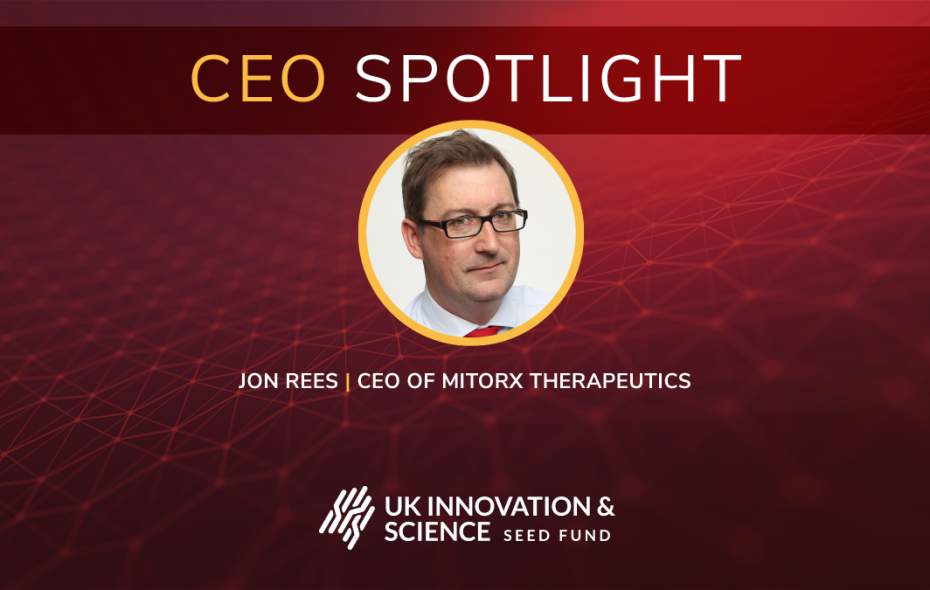
• MitoRx is a preclinical research stage biotechnology company developing first-in-class, orally available, mitochondrial protective therapeutics targeting rare neuromuscular disorders, rare metabolic disease, and neurodegenerative diseases.
• Jon Rees has 16 years in industry including as a consultant for Takeda Pharma Rare Diseases division, CEO of leading biotech network OBN/BioTrinity, polycystic kidney disease patient charity trustee (PKD UK) and CEO of MitoRx Therapeutics.
We changed the tone of the conversations to make our proposition relatable to investors. This meant less focus on science and more emphasis around the ‘why’. Initially, it’s a steep learning curve as communicating academic results to the business community can be tricky. Once it’s done effectively, you’ll start to see genuine interest and you’ll only get turned down by those who aren’t strategically cohesive with you.
Before we went out to raise funds, we had already prioritised our development programmes to the commercial opportunity. However, this financing round allows us to evaluate new ideas that require more expensive capital equipment with industrial and academic partners that wasn’t possible to consider previously. UKI2S has been instrumental for us at this early stage and our seed financing has set us on a good path to achieve our long-term vision.
In your initial communication with investors, make sure you include everything they need to know in order not to say no. This includes your exact stage, your lead indication, how much money you're raising, and what you are attempting to achieve with that money. Rather than focusing on the science, provide the essential information clearly – hand it to them on a plate. You don’t want the reviewer to have to read through the entire deck to find answers, make sure your key points are in the covering note.
A second piece of advice would be to put your British modesty to one side. Tell the investors how you're going to change the world, and if you really believe in what you're doing, you had better make sure they feel that in the initial meeting!
I have found drawing on inspiration from others extremely useful. The ‘father’ of sulfide signalling believes that if we come across a secret of nature, we have a responsibility to seize that opportunity. If we've come across the mechanism driving tissue atrophy and neurodegeneration, we have an ethical duty to translate what we have discovered to the clinic for social profit.
We've recently demonstrated that we can completely protect mitochondria from oxidative stress of biological origin in a mammalian system. This unique position confers on us a ‘technological obligation’ to develop this, and we want to be the global leader in arresting diseases driven by mitochondrial dysfunction. I find that this is a very emotive proposition.
I'm also inspired by Joshua S. Boger, founder of Vertex Pharma, now the world’s largest, rare-disease pharma who has spoken about the importance of the core ideology of a pharma company and having a “big hairy audacious goal”. If you set out to develop a medicine that has a large, clinically meaningful effect, then financial profits will follow because that is derivative of transforming patient lives.
You must have great science but you also need to believe you are on the road to a cure or a significantly disease modifying medicine. Having a novel technology alone has no inherent value, it must be able to be translated into a meaningful effect. Conviction from the founders is also essential. I’ve worked as a consultant previously, analysing and valuing companies, and you can tell when the founder really believes in what they are doing.
When we validated our hypothesis at MitoRx, we approached investors with extremely high levels of conviction. We know and believe that we can almost completely protect cells in disease-related stress and that can be communicated quite powerfully. Our aim is to arrest the progression of diseases driven by mitochondrial dysfunction and for the next financing round with the results coming in, we will have even greater confidence that we are on the path to this vision.